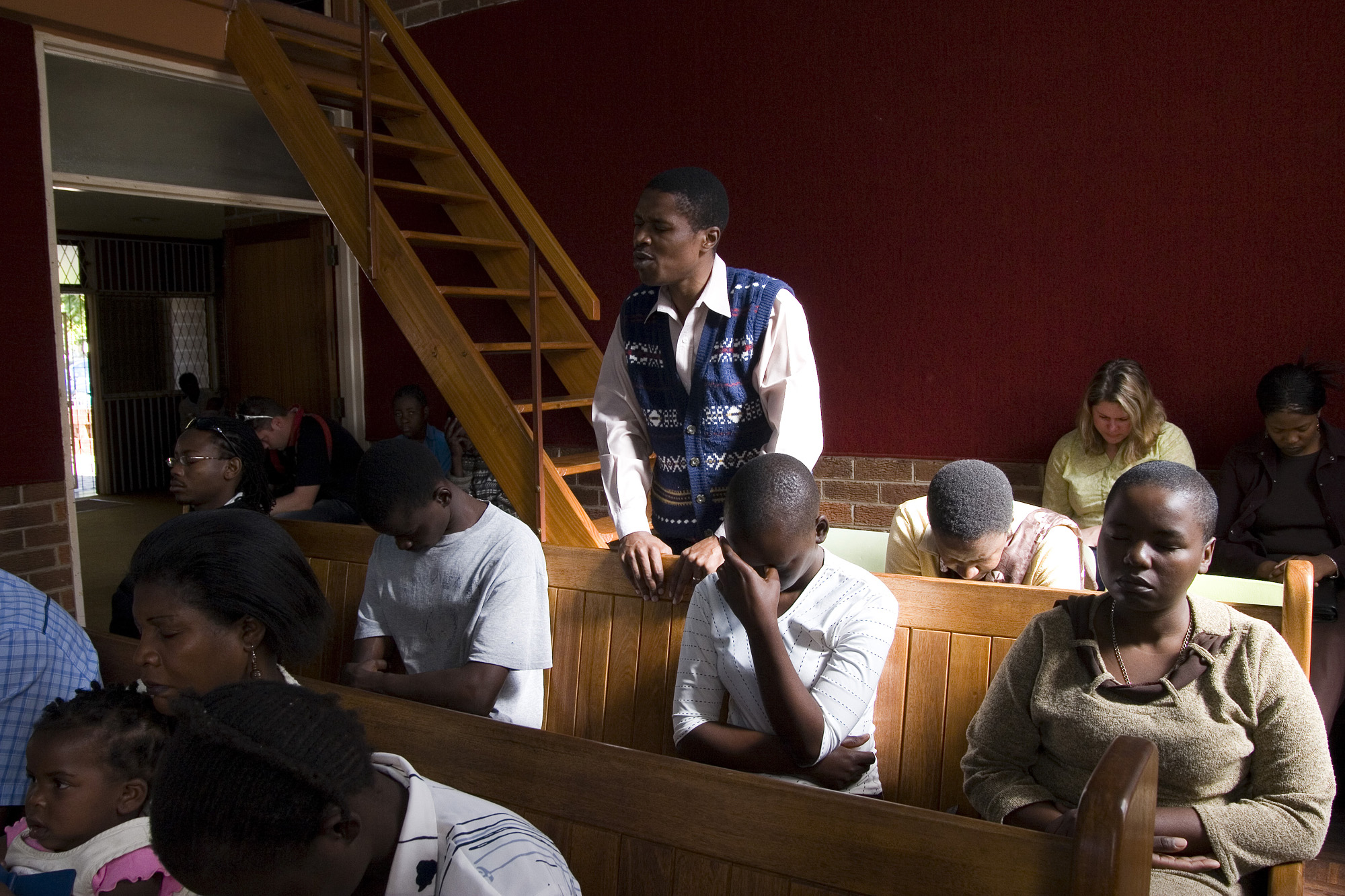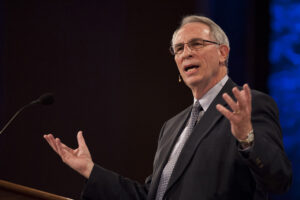
HARARE, Zimbabwe (BP)–Zimbabwe’s hyperinflation is spiraling out of control. Independent economists suggest the economy could collapse by the end of the year, bringing the country to a standstill.
If you bought a loaf of bread for 50 cents last year, it now costs around $1,125. Or more likely, you’d end up spending $2,750 at the unofficial inflation rate found in most stores. Government and independent estimates are completely different.
“People can’t survive like this,” says a Christian aid worker. “Even people who have jobs have a hard time buying food. That is the situation in Zimbabwe now. The churches must respond to this crisis.”
This African nation has the world’s highest inflation rate, even at the official estimate of 4,500 percent. Unofficially, independent economists in Europe say inflation rates are as high as 11,000 percent and rising. The U.S. ambassador to Zimbabwe, Christopher Dell, estimates the inflation rate will rise to well over 1.5 million percent before December.
Ray Motsi, pastor of Central Baptist Church in Bulawayo, says his church members really didn’t have a choice in responding to the needs of their fellow countrymen -– the needs walked through the door one Sunday. It happened two years ago, after Operation Clean up the Trash, when the government demolished homes that allegedly had been built illegally. Those left without a home or a job were forced back to the villages with no way to support themselves.
“The community literally walked into our church. We didn’t go to them,” Motsi says. “We never planned to go to them, but God had other plans for us. He wanted His church to become the oasis of life in a crisis. It’s a task we are still learning.”
Churches across Zimbabwe report hundreds of people coming to them each week with needs ranging from school fees to food and medicine. The Christian aid worker says at least 50 people show up on her doorstep every day. The program she directs has the means to help only around 15 people per day. She offers a clinic to help with basic medical needs, as well as a twice-a-week feeding project. The program also helps widows taking care of orphans with rent and basic food.
“By far, the greatest problem is meeting day-to-day needs for the average Zimbabwean,” the Christian aid worker says.
BACK WHEN….
The sign hanging in the store reads, “No ZESA [electricity], No foreign currency, No Way, Went home.” The obviously frustrated store owner remembers when times were better, when Zimbabwe was considered the “jewel of Africa.” A time when electricity and water were abundant and the Zimbabwean dollar held firm. A time when Zimbabwe was the “bread basket” of the southern Africa region, producing enough food to help out bordering countries. Now, many urban centers are without electricity for 10 to 20 hours a day, there’s a water shortage and the United Nations estimates more than one-third (4 million) of the country needs food aid.
Money devalues in the blink of an eye, so most businessmen try to deal in foreign currency. A pile of Zimbabwean dollars worth $50 in U.S. currency at the beginning of the week might be worth only $10 a few days later. Ray Cross, pastor of Northside Baptist Church in Harare, says many of the elderly in Zimbabwe have it rough living on their pensions. One man was told his monthly pension would not be mailed to him any longer because the cost of a stamp and paperwork was more than his monthly check.
“Imagine having a fixed income with an inflation rate in the thousands,” Cross says. “The church tries to respond and take care of the elderly and the orphans, but let’s face it -– everyone is so busy living and surviving, there’s often not much room for anything else.”
The cost of basic foodstuff and services required monthly by a Zimbabwean family of five was estimated in March 2007 at Z$1.7 million (US$136, according to the official government exchange rate). The monthly salary for an average urban worker, according to a survey done by ZWNews, starts at Z$90,000 (US$7.20) -– not enough to buy a 2-liter bottle of cooking oil (Z$500,000). An average income is less than US$1 a day.
To make up for the imbalance, Zimbabweans sell whatever they can on the streets. Whether it is vegetables from their gardens or goods from their own homes, roadside stands are popping up all over in an effort to squeeze out just a few more dollars that might make the difference between eating that day or going hungry.
“It’s not enough to have a job anymore. The focus of every day is surviving,” a Zimbabwean man says, peddling souvenirs after work. Unemployment is already more than 80 percent, but even those with jobs struggle.
One pastor says basic needs of the poor are being eroded right before the churches’ eyes. “We can’t keep watching,” he says. “People are suffering. The church is responding in a limited way. The church is quietly helping the needy. There’s not a lot of money to help out or to be spared, but God’s people must respond.”
When a group of homeless people walked into Motsi’s church two years ago, they forced the congregation to rethink the role their church played in the community. The pastor says a few years ago, the church in Zimbabwe did not recognize their role or social responsibilities.
“The church has always been more concerned about salvation and tithing, but are we limiting God when the church functions like that?” Motsi asks. “God deals with the nations. He feeds the poor and heals the sick. He wants the nation of Zimbabwe for His purpose and glory. God is redefining the role of the church in Zimbabwe.”
Cross and other pastors agree. Most churches have an ever-expanding social ministry program, relying on God to meet their basic needs every day. Cross says the church also must be an example to the rest of the nation for not only meeting physical needs, but how to “move on” with life. His church is home to many from the two warring political parties in Zimbabwe.
“We have members of the two political parties in our church. We try to show that the two parties can fellowship together,” Cross says. “The only hope for our nation is unity through Jesus Christ.”
–30–














